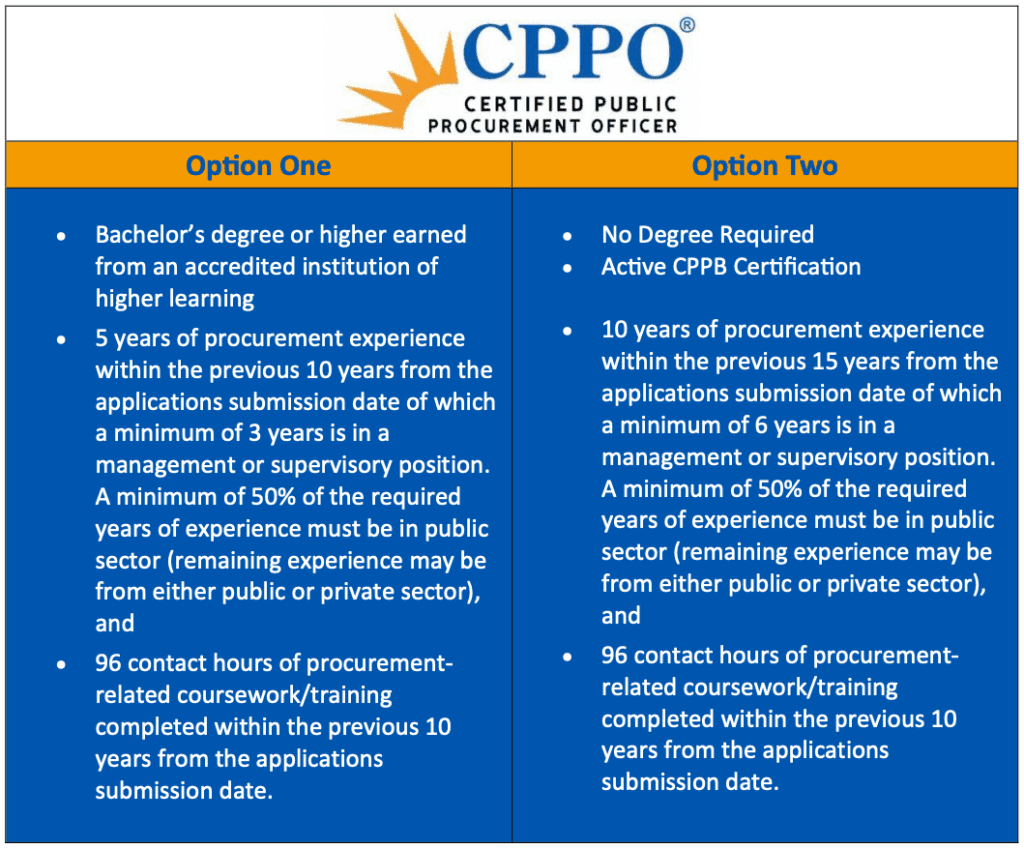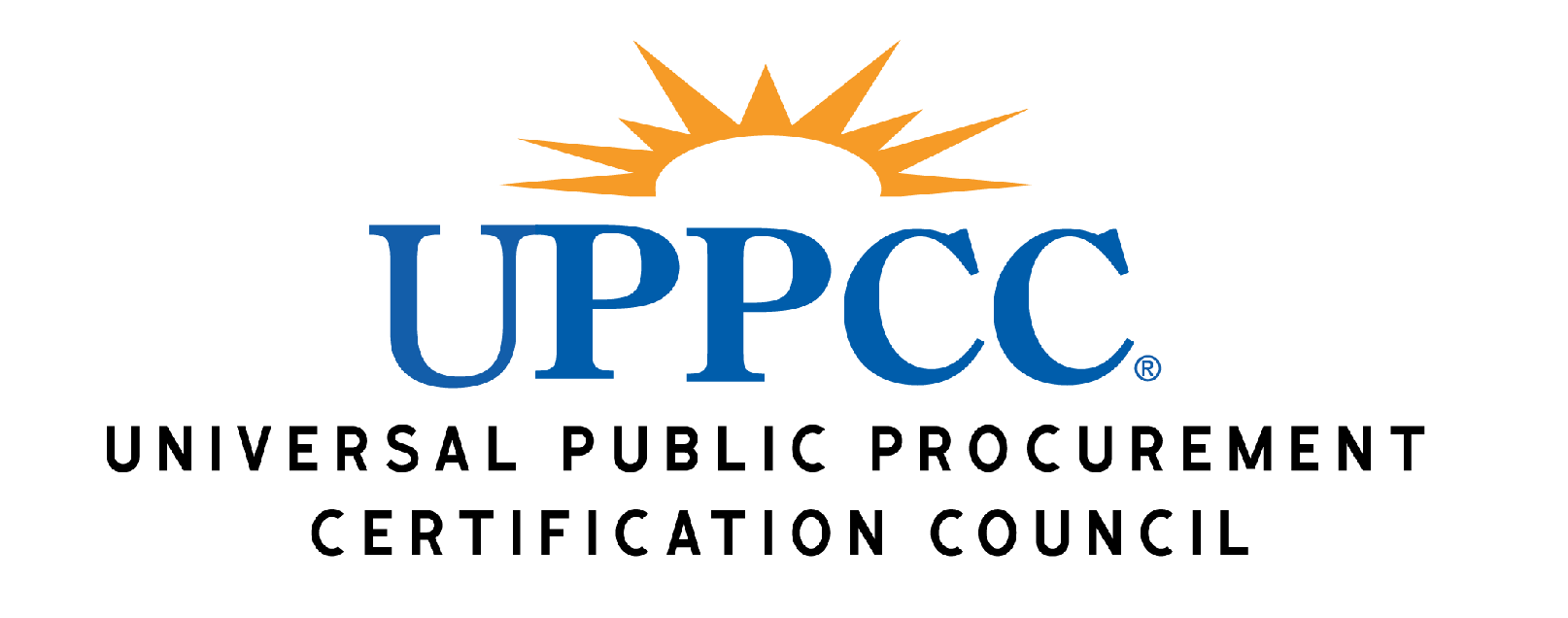The UPPCC Board of Directors is pleased to announce approval of a new eligibility option for the Certified Public Procurement Officer (CPPO) Certification Program. Given the significant number of highly competent professionals at the Officer level who do not have a bachelor’s degree or higher, UPPCC recognized the need for an alternative option for CPPO certification for these experienced professionals. The new eligibility option is shown below as Option Two with Option One being the existing option. This change will take effect starting with the Fall 2024 exam window.

FAQs
- Why create an additional option?
Competency – There are many different roads to competency in this profession. Having a formal bachelor’s degree is one but there are others. Many public procurement professionals “fell” into the profession and built their competency through years of hard work, many without a bachelor’s degree. There needed to be an additional eligibility option to CPPO certification which is inclusionary of these professionals.
The need for competency remains the core requirement of our certifications. Demonstrated experience reinforces this need to recognize the practical application of competencies over time beyond a degree, such as business acumen, integrity, service to the profession, experience, skills, temperament, and values.
Talent – The pool of candidates for job openings will expand to include highly qualified professionals, which otherwise, could not obtain CPPO certification or pursue jobs requiring a CPPO.
Creating an alternative option for minimum qualifications and expanding the pool of qualified candidates is a workforce trend in many professions. This is needed to be competitive in the marketplace. See some examples below:
These States Don’t Require a Degree for a Government Job | BestColleges
Minnesota governor drops college-degree requirement for most state jobs | MPR News
Companies eliminate college degree requirement to draw needed workers (cnbc.com)
- Can you explain the additional option’s eligibility requirements?
UPPCC continues to strongly support and recognize the value and significance of a bachelor’s degree. It remains the quickest option to eligibility for the CPPO.
However, to be inclusionary of other highly qualified professionals and recognizing the competitive nature of finding and keeping talent, the Board recognized a need for an alternative option. The no degree option has a much higher bar for eligibility. You must have an active CPPB and the procurement experience requirements and managerial role requirements are doubled. UPPCC feels these are appropriate requirements to demonstrate competency before being eligible for the CPPO certification.
- Is creating an additional option without a degree a new concept for certifications?
Not at all. Many professions recognize the need for alternatives to eligibility based more on experience in the field.
Two specific examples are:
Project Management Professional (PMP) – How to Apply for the PMP Certification | PMI
Society of Human Resource Management (SHRM) – Eligibility Criteria – SHRM Certification
- Does anything else change in the CPPO Program for candidates or existing certificants?
Nothing. All other aspects of the CPPO Certification Program are unchanged. UPPCC is simply adding a new eligibility option to include an additional pool of qualified, competent professionals.
- When is the effective date of the new eligibility option?
The new eligibility option becomes effective for the Fall 2024 exams. Applications using the new option will be accepted starting in June 2024. The first step is to create a MyUPPCC account at www.uppcc.org and wait to apply until June 1st when the new application window opens.
- What else should I be thinking about?
As a reminder, the ultimate determination of competency will be the exam. Just because there is a new eligibility option does not lower the standards set for the exam itself. You still have to demonstrate your abilities by passing the exam in order to earn the CPPO designation.
If you have any additional questions or comments on the new eligibility option, please contact us at [email protected].
